The views expressed in our content reflect individual perspectives and do not represent the authoritative views of the Baha'i Faith.
On May 25, 2020, I watched the news in horror. It had happened again: Another Black person in the United States had been killed by police.
It was Memorial Day — a day to mourn the fallen heroes of wars fought largely overseas. I live in Dallas and, due to the COVID-19 pandemic, instead of participating in public observances or attending a barbecue with friends, I was at home. And like many people, I was seeing the unbearable video footage of 46-year-old George Floyd being handcuffed, pinned to the ground, and asphyxiated. A white Minneapolis Police Department officer, Derek Chauvin, kept his knee on Floyd’s neck for nearly nine minutes. Floyd spent the last few minutes of his life choking out the plea, “I can’t breathe,” and calling upon his deceased mother to help him from the next world.
Now we faced another kind of mourning: a reckoning of the deep and insidious scars of the racism we have never healed, within a country that pledges “liberty and justice for all.”
RELATED: Here Comes Love: New Song Celebrates Movement to End Racism
The wound felt deep and intensive, and the effects of it have been painful and long-lasting. My friend Nwandi Lawson, a Baha’i who lives in Atlanta, Georgia, told me that she remembers where she was and what she was doing when she heard about the killing of Floyd.
“I was washing the dishes when I heard the news,” Nwandi says. “In my home, nothing was out of the ordinary. We had eaten stir fry for dinner and planned to play a board game after homework was completed. But now as I heard the first gruesome details surrounding the death of George Floyd, I glanced down on my soapy hands and noticed that my own tears had begun to mix with the water in the sink. It had happened once again.
“How, on a spring day in 2020, in a grocery parking lot, could another Black man have been killed by a police officer? Beyond crying, how could I respond in this season when a global pandemic and racial injustice were swirling together like the dishwater when I removed the stopper? Was the nation going down the drain?”
Baha’u’llah, the prophet and founder of the Baha’i Faith wrote in the 19th century that “The well-being of mankind, its peace and security, are unattainable unless and until its unity is firmly established.” He also wrote that “the best beloved of all things in my sight is justice.”
Due to Derek Chauvin’s trial, renewed attention is being placed on Minneapolis and many people are again asking themselves: What can we learn from this potent crisis of our times? How might we take action in our own localities, to help create a society based on respect and justice?
These are questions I’ve also pondered. I was privileged to find some answers through my involvement with the team that produced “Minneapolis: Playing our Humble Part,” a five-part video series that follows the story of how Baha’is in Minneapolis responded to the unfolding events in the neighborhood where George Floyd was killed.
Minneapolis: Playing Our Humble Part
For weeks, video footage of Floyd, captive and dying, reappeared on the news or across social media. It seemed to be a turning point. The impact of his death reverberated around the world, spawning murals, protests, poetry, greater awareness of police brutality, conversations about the need for racial unity and justice, and sometimes action related to personal transformation and community connectivity.
“Minneapolis: Playing our Humble Part” is designed to continue these conversations and spark action.
Each short video presents an aspect of how the Baha’i community took and continue to take action based on needs and responses in the neighborhood, becoming humble partners in unifying and healing people dealing with injustice and tragedy.
RELATED: Freeing Ourselves of the Stain of Racism
In the aftermath of the killing of George Floyd, more than 175 people — Baha’is and many others from the greater area — flocked to the neighborhood to help in mutual aid efforts. With the Baha’i Center’s proximity to what came to be known as George Floyd Square, it began to serve as a hub to coordinate volunteers for sanitization stations, providing guidance, masks, hand sanitizer, and water to visitors. Baha’is participated and continue to participate in community meetings twice a day, joining residents, business owners and members of many different faith communities and neighborhood associations.
One of the people featured in “Minneapolis: Playing our Humble Part” is Minneapolis resident Eliza Wesley. She felt inspired to join the Baha’is in providing assistance, prayers, and services needed in the neighborhood. Since area grocery stores had been destroyed, beginning in late May 2020, the Minneapolis Baha’i Center sponsored an outdoor (and later indoor) food and supply pantry, with donations arriving from various sources.
This was only one of the ways Baha’is sought to address local circumstances through actions inspired by a quote from the internationally-elected administrative body of the Baha’i Faith, the Universal House of Justice:
“ . . . you are seizing opportunities — whether those thrust upon you by current circumstances or those derived from your systematic labors in the wider society — to play your part, however humble, in the effort to remedy the ills of your nation. We ardently pray that the American people will grasp the possibilities of this moment to create a consequential reform of the social order that will free it from the pernicious effects of racial prejudice and will hasten the attainment of a just, diverse, and united society that can increasingly manifest the oneness of the human family.”
A Moral Imperative to Act
“Minneapolis: Playing our Humble Part” also shows how the Baha’i community and their friends felt called to alleviate human suffering and promote unity in their neighborhood, drawing from the Baha’i teachings of the oneness of humanity to begin the slow-healing wounds caused by racism. While some Baha’is lived nearby, many others came from other areas to join the activities. For 21 years, the Baha’i center had served as a space for classes for children, a mentoring and spiritual empowerment program for pre-teens, youth-led community gardening, community art projects, orchestra rehearsal and community outreach to build connections between neighbors in this diverse area — but nothing compared to the intensity of the efforts that were now taking place.
As the National Spiritual Assembly of the Baha’is of the United States wrote in June 2020: “To create a just society begins with recognition of the fundamental truth that humanity is one. But it is not enough simply to believe this in our hearts. It creates the moral imperative to act, and to view all aspects of our personal, social, and institutional lives through the lens of justice. It implies a reordering of our society more profound than anything we have yet achieved.”
With individuals and neighbors working together, a new vision of community began to emerge, one that brings people together in new and profound ways.
RELATED: Organizing With My Community to Bring About Justice and Unity
Building Bridges Through Friendship
This endeavor was a new experience for the Baha’is of Minneapolis, and new relationships were forged within the neighborhood. This required a humble posture of learning, drawing from the knowledge and experience of others. Through the humanitarian, spiritual, and practical aspects of these relationships, a continued sense of learning and connectivity began to grow.
The Universal House of Justice wrote in July 2020 that racism “is a profound deviation from the standard of true morality” and that it cannot “be rooted out by contest and conflict.” Instead, the neighborhood aims to build “just relationships among individuals, communities, and institutions of society that will uplift all and will not designate anyone as ‘other.’”
Today, the Baha’is and their friends in the neighborhood have become family. Through service and conversation, they have built relationships of love and trust, and are beginning to plan more systematic ways to engage children and youth in the area over the summer.
An Example of Social Action
For several months, the video team heard about how immediate and sustained action on the part of local Baha’is and their friends became part of an amazing effort to reach out and help the neighborhood recover. We reviewed footage, heard interviews, and saw the story take shape into focused segments, marveling at this example of a framework for community social action.
This video series presents a model for how we might all take social action in our communities, showing interviews with individuals who share how relationships changed in the process of working together. We can see it not only as a unique documentation of specific efforts that one community engaged in, but also as a path showing the way for all of those concerned with contributing to a better world.
We do not need to wait for trauma or disaster to begin forging relationships with our neighbors, building communities that reflect the oneness of humanity and break down the barriers of racism and prejudice that have divided us for so long.
We can only gain from pursuing such courses of action, holding in our hearts the memory of those fallen victims of racial prejudice and hoping not just for the end of such atrocities, but for the steady light of real unity.
The five-part video series can be found here.
Viewers are encouraged to utilize a helpful study guide that can be found here.


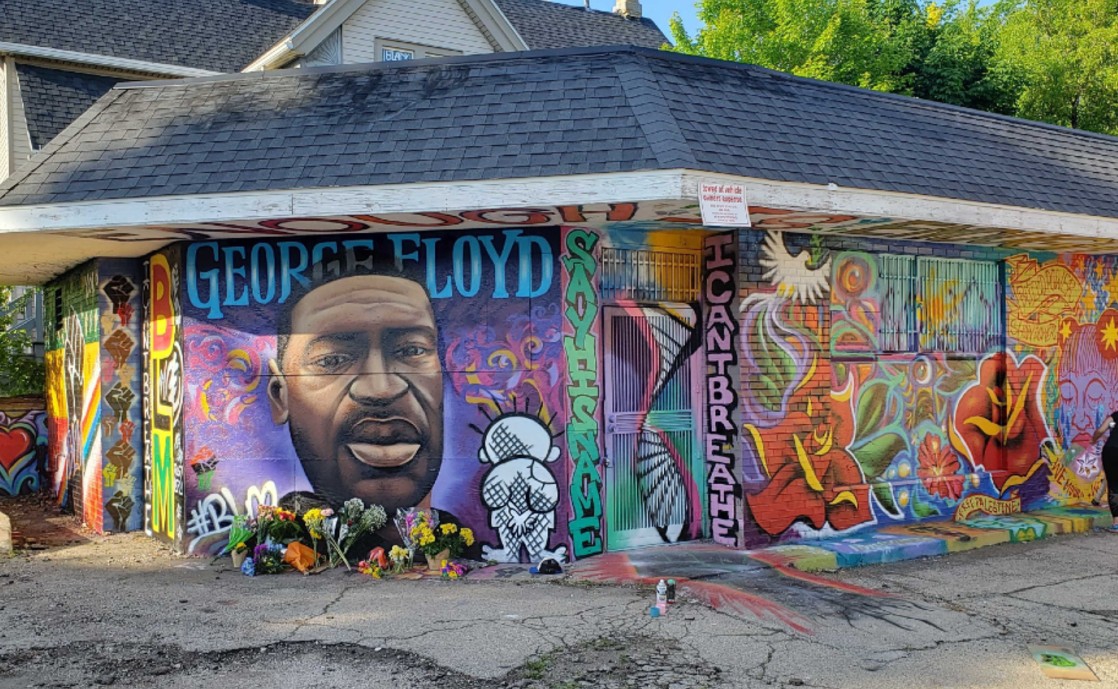
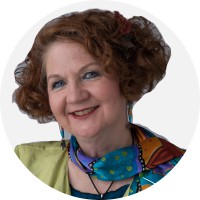
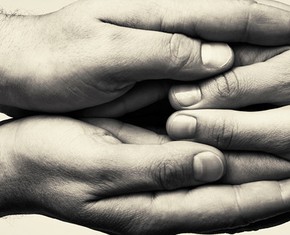
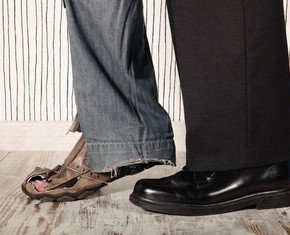
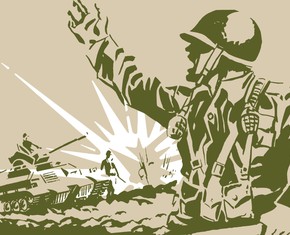









Comments
Sign in or create an account
Continue with Googleor